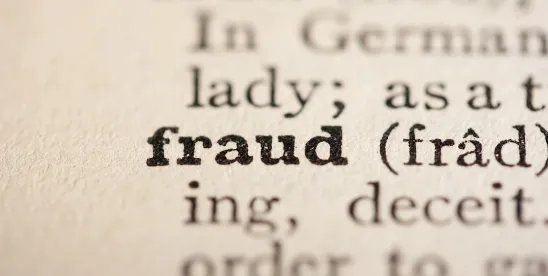The Supreme Court resolved a circuit split on the scope of the federal wire fraud statute, 18 U.S.C. § 1343, in Kousisis v. United States, 605 U.S. ___ (May 22, 2025). The case arose from the Pennsylvania Department of Transportation (PennDOT) soliciting bids for the restoration of historic buildings in Philadelphia. Because the project was funded with federal grant funds, those bidding on the project had to demonstrate that they worked with disadvantaged businesses as defined in federal regulation.
Defendant Alpha Painting and Construction Co. secured the government contracts. Alpha represented in its bid that it would use a disadvantaged business as its supplier. But that representation proved false, and Alpha submitted false documentation to cover up its misrepresentation.
Alpha was charged and convicted of wire fraud. The government’s theory was that Alpha had fraudulently induced the PennDOT to enter into the contract and was therefore guilty of wire fraud. Alpha argued that mere fraudulent inducement was not sufficient to sustain a conviction under the federal wire fraud statute, 18 U.S.C. § 1343. Because it provided value to the government for its services, Alpha contended there was no net pecuniary loss and therefore no criminal fraud. The Supreme Court disagreed.
Wire fraud is committed when the perpetrator uses the wires to defraud the victim of “money or property.” Id. The Court noted that the United States Circuit Courts of Appeal were divided on the question of whether a fraud conviction could stand “when the defendant did not seek to cause the victim net pecuniary loss.” Slip op. at 4.
The Court resolved the split, holding that as long as the defendant “obtained” something through the fraudulent scheme, the statute was satisfied. Id. at 7. Whether the defendant gave something in return, such as the restoration services Alpha provided, was not relevant because “the meaning of ‘obtain’ does not turn on the value of the exchanged items.” Id. at 7-8. The Court said that “a defendant violates § 1343 by scheming to ‘obtain’ the victim’s ‘money or property,’ regardless of whether he seeks to leave the victim economically worse off. A conviction premised on fraudulent inducement thus comports with § 1343.” Id. at 8.
The case is significant because it resolves a circuit split and interprets a widely used federal criminal statute. The decision may also lead to prosecutors’ broader use of the wire fraud statute.



 />i
/>i

